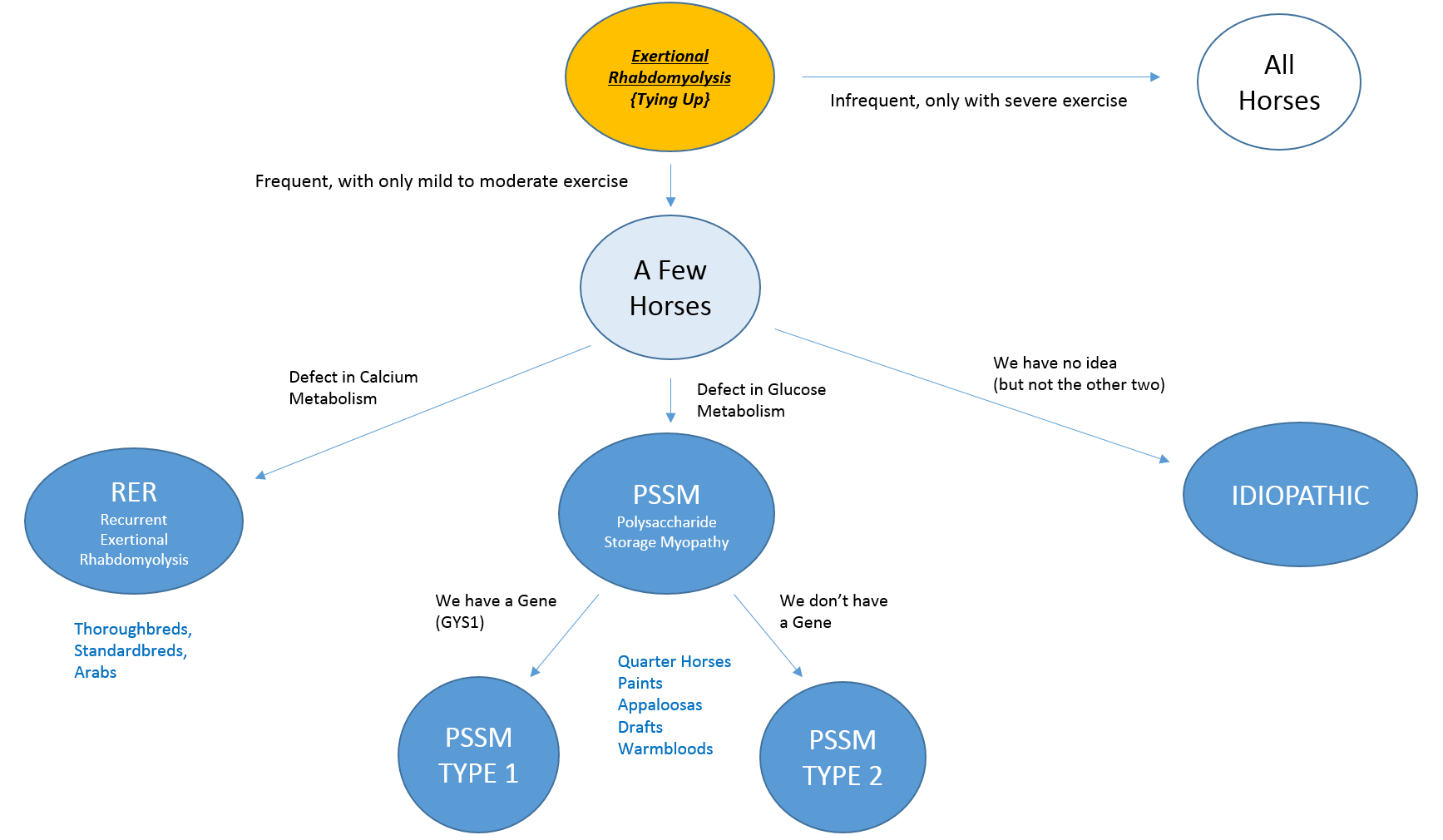There are a number of health issues that horses can develop throughout their lifetime, including muscle disease. Our veterinarians are here to help you navigate the symptoms, causes, and treatment for this condition.
Symptoms
Mild - muscle cramping, stiffness. Severe - inability to move.
Diagnosis
Unlike many lameness issues, the diagnosis of "tying up" is completely objective and unambiguous. Affected muscle cells die and release their contents into the bloodstream. These can be measured with a simple blood test and will be present in the bloodstream a few hours after the episode.
Muscle Biopsy
This may be recommended if your horse ties up frequently with only light exercise. The pathologist looks for only 2 items: a) Do the muscle cells have centrally located nuclei? This is a measure of severity and frequency of damage. b) Do the muscle cells have excessive amounts of glycogen (polysaccharides)? This has been associated with tying up in Quarter Horses and some draft breeds, and has been called PSSM (see diagram). Some Thoroughbreds also tie up frequently, and these horses show evidence of muscle damage (centrally located nuclei) without abnormal glycogen storage. These horses are presumed to have RER - a defect in calcium metabolism. There is functional test that can be performed on isolated muscle to confirm RER but this is only done in a research setting.
Genetic Testing
Some (not all) horses with PSSM will have a defect in the GSY1 gene. This can be determined by submitting blood or hair follicles to an appropriate lab. Note that 62% of Belgians and more than 11% of AQHA registered Quarter Horses are positive for this gene, but far fewer of these horses have clinical issues with tying up. There is no gene identified for RER but it appears to be inherited as an autosomal dominant.
Treatment/prognosis
Treatment involves carefully controlled exercise, a low carbohydrate diet, and supplementing vitamin E and Selenium. Muscle biopsy results do not alter treatment regimens or provide information on success rates.
Some horses do not respond.


